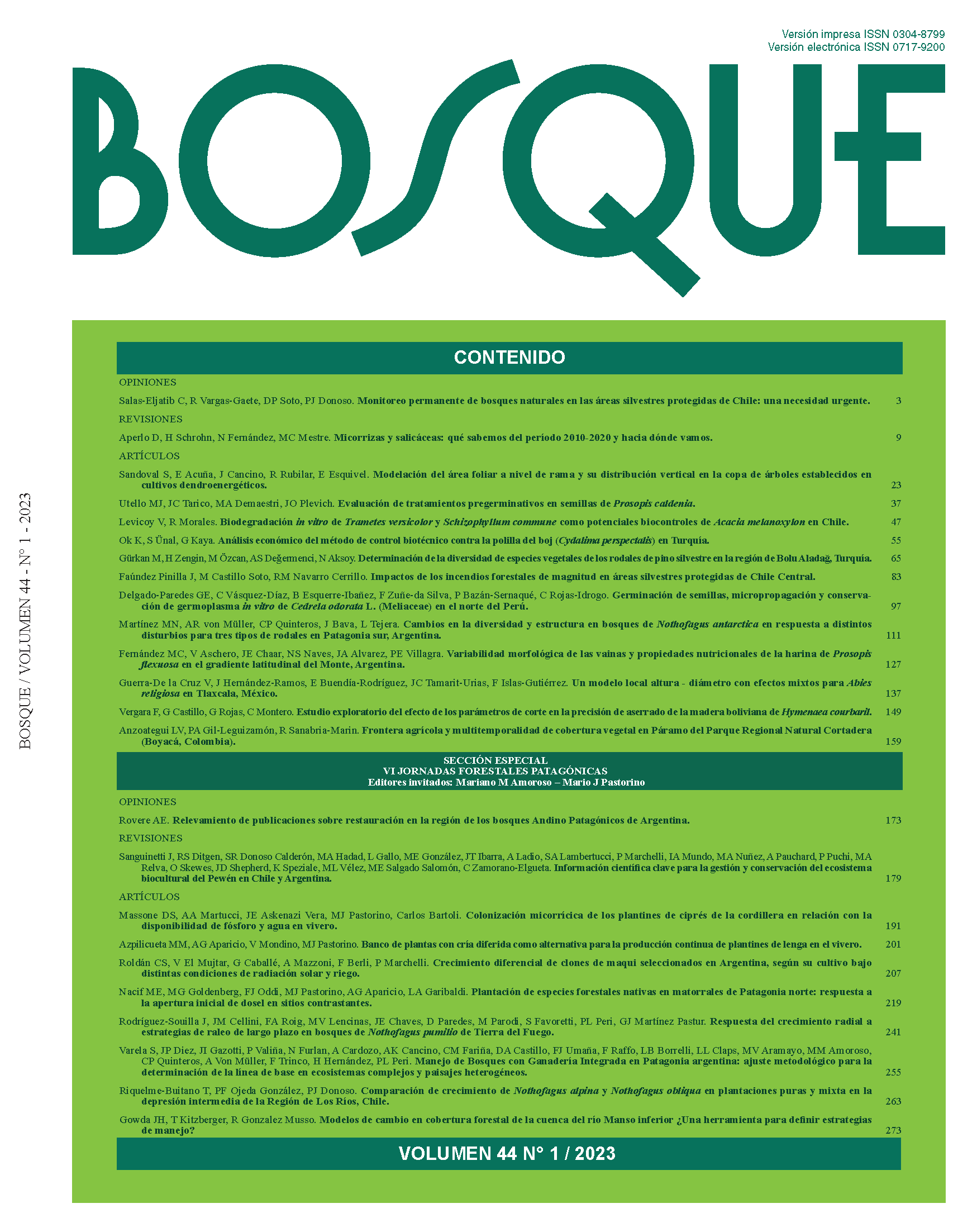Impacts of severe wildfires in the protected wilderness areas of central Chile
Main Article Content
Abstract
The natural heritage and ecological processes of protected wilderness areas (ASP) are constantly threatened by a variety of factors, including wildfires. This study seeks to evaluate the impacts of large wildfires (IFM, ≥ 200 ha) in the ASPs of central Chile over the last 20 years (2000 - 2020), by identifying and characterizing the affected areas as well as the damages caused. To identify the affected sectors, burned areas were mapped using historical records along with remote sensing tools. The maps of burned areas allowed for the identification of 35 large wildfires that have impacted the ASPs of central Chile, including 17 SNASPE units and Nature Sanctuaries. The origin of most wildfires was located outside of the administrative limits of the ASPs and began in native forests and plantations. Regarding the main damages caused, 16 ecosystem types were affected by IFMs, 12 of which were under a significant level of risk. Additionally, considering the effects on water quality, an average of 21.2 ha of affected riparian vegetation was recorded per year, while 15 units recorded damage to soil conservation. Regarding CO2 emissions, an average of 10,389 tCO2 per year were released into the atmosphere. Finally, the results led to four different guideline recommendations for managing and preserving these areas, which focused on reducing occurrences, preventing large wildfires, and post-fire management in the ASPs.

